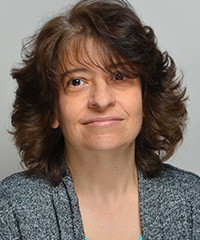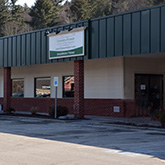At Central Vermont Medical Center our Speech Language Pathologists (SLPs) provide behavioral intervention, or voice therapy, to treat voice problems caused by a variety of issues.
We have all experienced problems with our voices; times when the voice is hoarse or when sound will not come out at all. Colds, allergies, bronchitis, exposure to irritants such as ammonia, or cheering for your favorite sports team can result in a loss of voice. If you have experienced a hoarse voice for more than 2 to 3 weeks, you should see a physician.
Evaluation
A thorough voice evaluation should include: a physician's examination, preferably by an otolaryngologist (ear, nose, and throat doctor) who specializes in voice; a voice evaluation by a speech-language pathologist (SLP); and, possibly a neurological examination.
The team will evaluate vocal quality, pitch, loudness, ability to sustain voicing, and other voice characteristics. An instrumental examination may take place that involves inserting an endoscope into the mouth or nose to look at the vocal cords and larynx in general. A stroboscope (flashing light) may be used to watch the vocal cords as they move.
Treatment
Many people receive behavioral intervention, or voice therapy, from a Speech Language Pathologist (SLP).
Voice therapy involves:
- teaching good vocal hygiene
- reducing/stopping vocal abusive behaviors
- direct voice treatment to alter pitch, loudness, or breath support for good voicing
Stress reduction techniques and relaxation exercises are often taught as well.
About Paradoxical Vocal Fold Movement (PVFM)
Paradoxical vocal fold movement (PVFM) - also called vocal cord dysfunction (VCD) - is a voice disorder. The vocal folds (cords) behave in a normal fashion almost all of the time, but, when an episode occurs, the vocal cords close when they should open, such as when breathing. PVFM can be mistaken for asthma as it leads to wheezing and difficulty breathing, sometimes to the point of requiring hospitalization.
PVFM Treatment
PVFM is treated both medically and behaviorally. Medical intervention addresses any physical and/or psychological factors. Behavioral intervention with an SLP includes vocal exercises, relaxation techniques, and proper breath support. The goal of intervention is to make the individual aware of what triggers PVFM so they can avoid those situations. The person is also taught how to handle an episode when it occurs.
- Speech Language Pathologist
 Speech Language Pathologist
Speech Language Pathologist Speech Language Pathologist
Speech Language Pathologist

CVMC Rehabilitation Therapy - Berlin
Phone
Fax
802-371-5350


